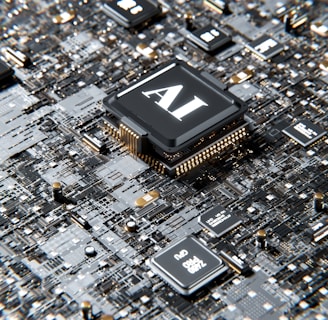How can AI improve general practice provision? Let us count the ways...
Some of the many ways in which AI will become a GP's best tool
Dr Ahmad Moukli
8/29/20242 min read


Artificial Intelligence (AI) is set to become an integral part of the medical profession, including general practice. It offers a range of tools and technologies that can significantly enhance patient care. These include:
Predictive Analytics
AI-powered predictive analytics can forecast potential health outcomes based on patient data and broader health trends. These systems utilize vast datasets to identify risk factors for diseases like diabetes, cardiovascular diseases and more. AI can analyze data from electronic health records (EHRs) and predict patient-specific health risks which allows for proactive management rather than reactive care.
Personalized Patient Care
AI, perhaps counterintuitively, facilitates a more personalized approach to healthcare. Through machine learning algorithms, AI systems can suggest customized treatment plans that consider individual patient characteristics, including genetics, lifestyle, and previous health history. Systems like Tempus use AI to analyze clinical and molecular data to understand a patient’s condition and tailor medical decisions, practices and therapies accordingly.
Diagnostic Assistance
AI tools can also assist in diagnostics by processing and analyzing medical images faster than human providers, with tools like Google’s DeepMind Health pioneering the way in areas such as early detection of eye diseases. Another example includes AI-based applications like Chatbots, which provide initial diagnostic assessments based on symptoms reported by the patient before they even visit the clinic.
Remote Patient Monitoring
AI enables remote monitoring of patients’ health using wearable technologies that track vital signs and other health data in real-time. This data is analyzed by AI systems to alert healthcare providers if a patient’s readings stray from normal ranges or if intervention is needed promptly, potentially avoiding hospital re-admissions or serious health episodes.
Clinical Decision Support
AI systems can offer clinical decision support to physicians by integrating with existing clinical workflows and EHR systems, providing evidence-based treatment options or reminding providers of best practices. Tools such as IBM’s Watson Oncology provide insights derived from vast amounts of medical literature and case studies to aid in decision-making processes, particularly in complex cases like cancer.
Administrative Applications in Clinical Settings
AI’s potential to streamline administrative tasks in clinical settings is vast. From scheduling and patient flow optimization using AI-driven analytics tools to more direct patient care applications such as those mentioned above. The integration of AI can save time, reduce costs and, importantly, improve outcomes by providing more precise and personalized care.
In conclusion, AI is set to transform general practice by enhancing the accuracy of diagnostics, personalizing patient care and predicting future health outcomes, thereby not just treating but anticipating health needs. As AI technology continues to evolve, its integration into daily clinical practices will likely become the standard, heralding a new era of healthcare driven by data and elevated by machine intelligence.
What aspects of general practice do you feel could be improved by AI? Connect with us on LinkedIn and join the conversation.
Contact
Connect
Contempo Consulting Ltd
71-75, Shelton Street, Covent Garden, London WC2H 9JQ
Registered in the UK, No. 15644924 | Copyright 2025 Contempo Consulting Ltd
